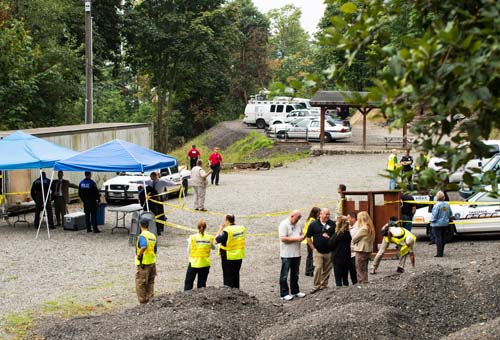


Improve multidisciplinary team (MDT) responses to child sex trafficking cases. Gather information about improving or establishing a formal MDT in your community. Identify gaps and develop short and long- term response plans with the help of subject matter experts. To attend this training, you must be part of a multidisciplinary team and your team members must attend with you, from a minimum of 5 to a maximum of 10. Each team member should register individually. To make your team easily identifiable, all team members should use the same name for their team leader during the registration process. If you need assistance in building your team, please contact our office at the number/email below.

Explore and understand the process of forming a Multidisciplinary Team (MDT) response to Commercial Sexual Exploitation of Children (CSEC) cases. Examine the importance of establishing roles for each discipline, team member and recognize how effective teams communicate and work together.

This webinar will provide an introduction to multidisciplinary teams in Indian Country with a focus on child protection and serving victims of crime.

Learn the stages of developing an effective, sustainable, multidisciplinary team (MDT), which include Awareness, Implementation, and Institutionalization. You will learn the importance of each stage, and how and when MDT’s can transition from one stage to the next for sustainability.

Discuss the benefits of working as an MDT, utilizing corroboration, best practices, and other successful strategies in solving child abuse investigations.

Many communities continue to struggle with building an effective CCR to domestic violence, sexual assault, stalking and dating violence that involves every system and community-based stakeholder impacting a case. Ongoing collaboration and information-sharing on IPV and sexual assault cases is crucial to managing appropriate services and accurately communicating the level of risk, the safety needs as determined by the survivor, while also preventing significant case facts from falling through the cracks. Building and sustaining a multidisciplinary team takes leadership. During this webinar, you will learn state of the art practices that can substantially improve outcomes for victims/survivors, communities and offenders involved in the criminal justice system. Developing formal and informal leadership in organizations is key to improving outcomes and experiences for the clients being served.

Take steps toward implementing a successful CART by bringing together a team of experts whose knowledge, skills, and abilities will be beneficial in a child abduction case. Join us to learn how to develop a multidisciplinary CART for responding to endangered, missing, or abducted children. Hear about the impact a child abduction has on the family and learn the fundamentals of developing an effective responsive CART team. Examine incident command considerations, search and canvassing operations, CART activation, and resources to improve the response, investigation, search, and canvass activities associated with missing children investigations.

Explore the history and development of the New Jersey Child Abduction Response Team (CART) model, mandated by law and recognized as a highly effective response and recovery tool for missing and abducted children. Examine the inception of the NJ CART model, and analyze the methods used to identify and engage stakeholders while overcoming challenges. Understand the composition of the team, including its directives, manuals, criteria, and command structure. Investigate the CART's first activation and evaluate several subsequent successful child recovery cases, gaining insight into this proven approach to missing children investigations.

Seconds count when a child goes missing. A Child Abduction Response Team (CART) is a critical tool law enforcement agencies use to provide an effective and efficient response to a missing child incident. The CART Certification Program ensures CARTs operate at a level of excellence in both their structure and operational ability and are practiced, tested, and ready. Walk-through the process of certification and pinpoint the resources necessary to ready a team. Identify next steps to bringing a CART to full certification.

This fast-paced two-day course equips law enforcement and multidisciplinary partners to build and sustain an effective Child Abduction Response Team (CART). Participants will examine offender behavior, abducted and lost child dynamics, team structure, deployment planning, legal considerations, and victim services—while analyzing how each element impacts recovery outcomes. Throughout the course, participants complete a CART Implementation Worksheet to document their agency’s resources, plans, key partners, and equipment—creating a practical roadmap for team development. The training culminates in a realistic, interactive readiness assessment that tests decision-making, coordination, and team preparedness through a time-critical missing child scenario. Success in the final exercise depends on how well participants apply what they’ve learned. Participants leave with not only a plan—but the experience of having tested it in a race against the clock to bring a child home safely.
